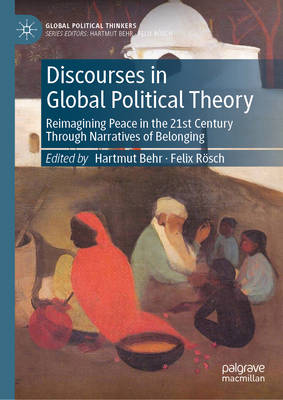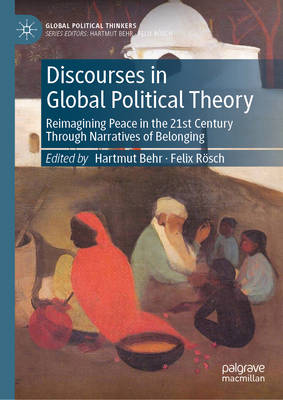
- Afhalen na 1 uur in een winkel met voorraad
- Gratis thuislevering in België vanaf € 30
- Ruim aanbod met 7 miljoen producten
- Afhalen na 1 uur in een winkel met voorraad
- Gratis thuislevering in België vanaf € 30
- Ruim aanbod met 7 miljoen producten
Discourses in Global Political Theory
Reimagining Peace in the 21st Century Through Narratives of Belonging
Omschrijving
This book traces narratives of belonging around the globe from a political theory perspective. It highlights that such narratives have developed within the context of cultural exchange and relationality, i.e. transgressing space and time and embedded in relations between material and immaterial objects. These narratives are formed transculturally, forcing people to re-consider, re-negotiate, and re-evaluate their thoughts about community and belonging over time and often leading to changes and ruptures. In getting a deeper understanding of such exchanges of personal and intellectual constellations, this volume identifies potential anthropological constants in global thinking about belonging. Despite different linguistic, spatial, and cultural socialisations, trying to establish ways of living together that offer ontological security seems intrinsic to human life. Insights into what unites people, rather than divides them, might proof beneficial in finding ways for more sustainable peaceful human relations.
Specificaties
Betrokkenen
- Uitgeverij:
Inhoud
- Aantal bladzijden:
- 212
- Taal:
- Engels
- Reeks:
Eigenschappen
- Productcode (EAN):
- 9783032027856
- Verschijningsdatum:
- 14/11/2025
- Uitvoering:
- Hardcover
- Formaat:
- Genaaid
- Afmetingen:
- 148 mm x 210 mm
- Gewicht:
- 421 g

Alleen bij Standaard Boekhandel
Beoordelingen
We publiceren alleen reviews die voldoen aan de voorwaarden voor reviews. Bekijk onze voorwaarden voor reviews.






